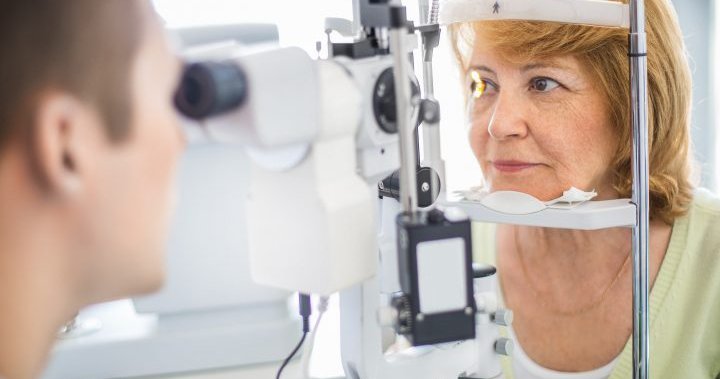
1st signs of Alzheimer’s may be detected in your eyes. This AI scan may help find it
Global News
The relentless pursuit of detecting Alzheimer's has posed a grueling battle for families and the medical community, but a simple eye scan may help ease that burden.
The relentless pursuit of detecting and combating the effects of Alzheimer’s disease has posed a grueling battle for families and the medical community, but a simple eye scan at an optometrist’s office may one day help ease that burden.
It’s called RetiSpec, a Toronto-based medical imaging company that uses AI and a retinal scan to help detect early signs of Alzheimer’s. The company is in the process of seeking regulatory approval for its scan in Canada and the U.S.. The technology would be the first kind to be approved in either country.
“One of the problems with Alzheimer’s is that it’s not picked up early,” said Sharon Cohen, neurologist and medical director of the Toronto Memory Program. She added that it can also be difficult to detect the first signs of the disease.
“We actually call it probable Alzheimer’s…we can be wrong a lot of the time. And with new treatments coming that are aimed at precision medicine, we need to get it right. You can’t imagine treating someone for cancer if they don’t actually have cancer,” she said.
In order to help detect early signs of Alzheimer’s, medical professionals typically use diagnostic tools like PET scans or spinal taps, Cohen explained. But these diagnostic tools can be expensive, invasive and not readily available.
That is where RetiSpec comes in. The AI technology is mounted on an optometrist camera. With a retina scan it can take a picture of the back of the eye.
“A picture of the eye gives you literally and figuratively, a window into the brain because the back of the eye is the front of the brain,” Cohen said. “And you can see the signature of amyloid…that sticky protein that builds up very early in Alzheimer’s disease.”
If amyloid is present then that person has the pathology of Alzheimer’s disease.


















